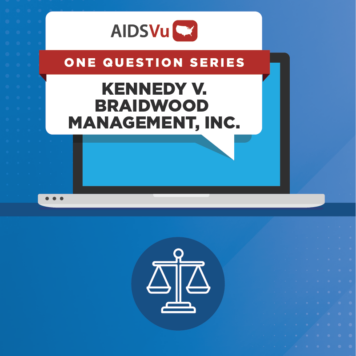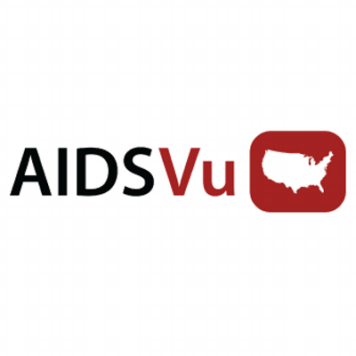On January 10, the Supreme Court agreed to hear Becerra v. Braidwood Management, Inc., now known as Kennedy v. Braidwood Management, Inc., a case that questions the constitutionality of the Affordable Care Act’s (ACA) preventive services coverage requirement, which includes coverage of PrEP to prevent HIV.
Specifically, the case examines the U.S. Preventive Services Task Force’s role in mandating the coverage of preventive services under the ACA. If the Supreme Court rules in a way that strikes down the ACA preventive services coverage requirement for USPSTF Grade A and B preventive services, then commercial health plans and Medicaid expansion plans would no longer be required to cover PrEP with no cost-sharing, which would have a detrimental impact on PrEP access.
Oral arguments on the case were heard on April 21, 2025, and a decision is expected by the end of June.
The Supreme Court has agreed to hear the Braidwood case, a challenge to the ACA’s requirement for no-cost access to preventive services; what are the potential implications of this challenge for PrEP access and the goal of ending the HIV epidemic United States?
Elizabeth Kaplan, Director of Health Care Access and Clinical Instructor at Harvard Law School’s Center for Health Law and Policy Innovation
If the Supreme Court guts the requirement to cover without cost-sharing services recommended by the U.S. Preventive Services Task Force—including PrEP—I am concerned that over time that will lead to reduced PrEP access and use. While at least some plans will likely continue to cover PrEP without any copayments or cost-sharing—such as plans governed by state laws that mirror the ACA preventive services requirement, and plans that are generally more generous and more expensive—other plans may eventually impose cost-sharing for PrEP. Recent research has shown that as out-of-pocket costs for PrEP rise the likelihood that a person will stop taking PrEP increases. Together, these trends paint a worrisome picture, in which access to PrEP varies even more than it does already based on where someone lives and what kind of insurance they have, exacerbating existing disparities in PrEP use and leading to higher rates of HIV acquisitions.
Carl Schmid, Executive Director, HIV+Hepatitis Policy Institute
Coverage of no-cost preventive services, including HIV and hepatitis testing, along with PrEP, now rests with the highest court in the land. In our amicus brief we laid out the critical role testing plays in linking people to life-saving medications and, in the case of Hepatitis C, curative treatment, along with the importance of people knowing if they have an infectious disease. The importance of PrEP in preventing HIV only continues to grow, including long-acting PrEP drugs which are almost 100 percent effective in preventing HIV. Coverage of preventive services by private insurers will help end HIV and hepatitis and losing them would certainly damage the public health of our country and increase medical costs.
The Court must understand the importance of the ACA preventive services requirement and the severe ramifications on the American people and the health of our country if they were to side with the plaintiffs.
Patrick Sullivan, DVM, PhD, Professor, Department of Epidemiology, Rollins School of Public Health, Emory University and Principal Scientist at AIDSVu
It’s hard to believe we’ve come so far in HIV prevention—through research breakthroughs, viral suppression, expanded access to PrEP, and declining case numbers—only to now consider undoing policies that make PrEP more affordable, including ACA coverage. These policies have played a major role in our success. Removing them wouldn’t just raise HIV rates across the country and endanger lives—it would also come with a steep financial cost.
According to my recent research, even a modest drop in PrEP usage could result in over 8,000 additional HIV infections each year. The lifetime treatment expenses for those cases would total nearly $3.6 billion.
We are within reach of ending the HIV epidemic. Pulling back now would squander decades of progress, sacrifice, and hard-earned victories. Year by year, we’ve been gaining ground and removing barriers. Now is not the time to pause or retreat.
Lindsey Dawson, Associate Director for HIV Policy and Director for LGBTQ Health Policy at KFF
Should the Supreme Court rule in Braidwood’s favor, private health insurers would no longer be required to cover PrEP, or a range of other preventive services, without cost-sharing. This could undermine access to one of the most important HIV prevention tools available. While it is likely that most plans would continue to cover PrEP and associated services, they could impose cost-sharing and we know that even nominal cost-sharing can be barrier to health care. Additionally, some plans might drop or limit coverage for some PrEP more broadly.
Just as HIV incidence in the US is on the decline, reducing access to HIV prevention tools could have negative public health implications. A recent analysis estimated that for every 1% decrease in PrEP coverage, over 100 new HIV infections in the following year would occur among men who have sex with men alone. In addition to having a negative impact on individual and public health, costs could go up. Today, estimated lifetime HIV treatment costs are nearly half a million dollars, so increases in incidence can pose financial challenges for individuals and health systems.




